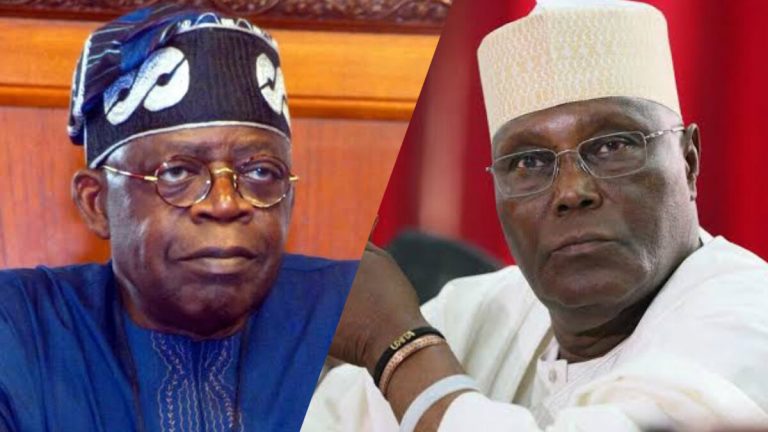Former Vice President Atiku Abubakar has criticised the federal government’s (FG) 2025 budget, labelling it insufficient to address Nigeria’s pressing economic challenges.
The New Daily Prime earlier reported that President Bola Tinubu presented an N49.7 trillion budget to the National Assembly last week, tagged the “Budget of Restoration: Securing Peace, Building Prosperity.”
In a statement on his X page today, Atiku, the 2023 presidential candidate of the Peoples Democratic Party (PDP), expressed concerns over the budget’s dependence on excessive borrowing, poor allocation priorities, and the absence of structural reforms.
READ ALSO: Atiku faults Tinubu’s tax reform bills, warns National Assembly
He warned that the proposed budget would exacerbate Nigeria’s fiscal crisis, noting that it projects revenue of N35 trillion while leaving a deficit of over N13 trillion—approximately 4 per cent of the country’s GDP.
Atiku condemned the budget as a continuation of “business-as-usual” practices under the All Progressives Congress (APC)-led administration, a trend he argued has persisted since 2016.
He also criticised the government’s plan to borrow over N13 trillion, comprising N9 trillion in direct loans and N4 trillion in project-specific financing.

He described this strategy as perilous, warning it would inflate public debt and expose the economy to risks, including rising interest payments and foreign exchange pressures.
The Adamawa-born politician further cited the underperformance of the 2024 budget as a red flag, urging the government to rethink its fiscal strategy.
READ ALSO: Tinubu presents N49.7trn 2025 budget to NASS
“By the third quarter, less than 35 per cent of allocated capital expenditure for ministries, departments, and agencies (MDAs) had been disbursed, despite government claims of 85 per cent budget execution.
“This raises doubts about the 2025 budget’s potential to deliver on its promises, particularly in the critical area of capital spending, which is essential for economic transformation”, he said.
He further pointed out that a substantial portion of the 2025 budget, amounting to N15.8 trillion (33 per cent of total expenditure), has been allocated for debt servicing—nearly equivalent to the N16 trillion designated for capital expenditure (34 per cent).
Atiku emphasised that, alarmingly, debt servicing now surpasses the combined spending on vital sectors such as defence (N4.91 trillion), infrastructure (N4.06 trillion), education (N3.52 trillion), and health (N2.4 trillion).
He warned that this disproportionate allocation would stifle necessary investments, creating a vicious cycle of borrowing that threatens fiscal stability.
READ ALSO: Atiku arrogant, jealous of Tinubu – Presidency
Atiku also criticised the government’s excessive recurrent expenditure, which exceeds N14 trillion per cent of the budget), predominantly directed toward maintaining a bloated bureaucracy and inefficient public enterprises.
He lamented the administration’s inability to curb wasteful spending and improve operational efficiency, resulting in constrained resources for crucial development initiatives.
“After accounting for debt servicing and recurrent costs, the allocation for capital spending—between 25% and 34% of the budget—is insufficient to address Nigeria’s massive infrastructure deficit. Atiku estimated this translates to just N80,000 (approximately $45) per capita, which is inadequate for a country grappling with slow growth and widespread infrastructural underdevelopment.”
Atiku also condemned the administration’s proposal to increase the VAT rate from 7.5 per cent to 10 per cent, describing it as a regressive move that would exacerbate the cost-of-living crisis and stifle economic growth.
He argued that imposing additional tax burdens on an already struggling population, without addressing governance inefficiencies, risks dampening domestic consumption and worsening economic hardship.
Atiku stressed that the 2025 budget fails to implement the structural reforms and fiscal discipline required to tackle Nigeria’s economic challenges.
He called on the government to focus on reducing inefficiencies, curbing contract inflation, and adopting a long-term strategy for fiscal sustainability.
“A shift toward disciplined, growth-oriented fiscal policies is crucial for Nigeria’s economic recovery,” he stated.